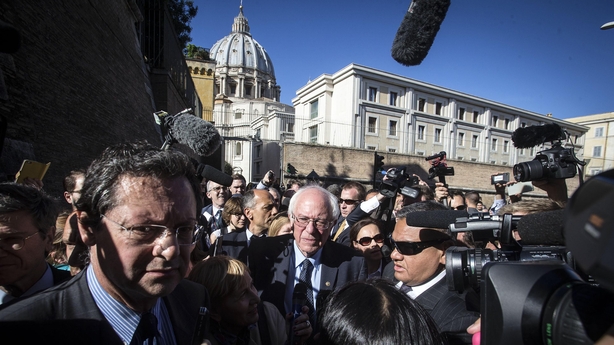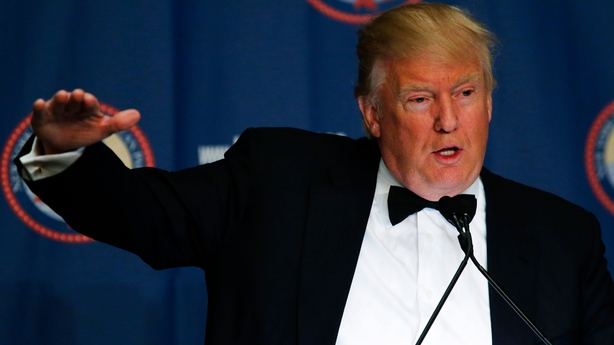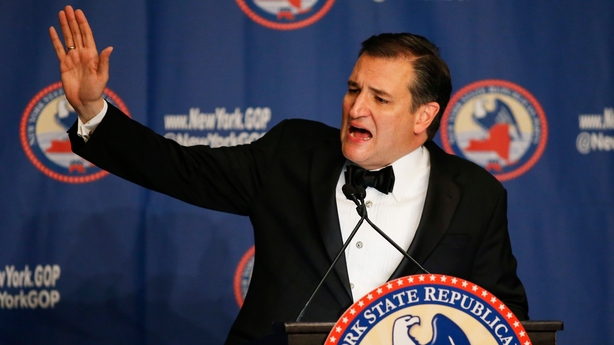Democratic front-runner Hillary Clinton and rival Bernie Sanders challenged each other's judgement and experience in a fiercely combative US presidential debate ahead of Tuesday's crucial nominating contest in New York.
Ms Clinton and Mr Sanders attacked each other over Wall Street, gun control and other issues in a series of exchanges that laid bare the mounting pressures on them both but seemed unlikely to change the dynamics of the race.
While far short of the brawls that have characterised Republican debates, the tone reflected a contentious turn in the Democratic contest.
Both candidates out-shouted each other while a split crowd roared its approval.
She or he who shouts the loudest... Hillary Clinton and Bernie Sanders debate gets heatedhttps://t.co/EC7WO5jBgk
— RTÉ News (@rtenews) April 15, 2016
"If you're both screaming at each other, the viewers won't be able to hear either of you," moderator Wolf Blitzer of CNN warned during the debate at the historic Navy Yard in the New York borough of Brooklyn.
As the two-hour debate ended, social media analyst Brandwatch said Mr Sanders had more than 173,000 mentions on Twitter, 55% of them positive, while Ms Clinton had more than 191,000 mentions, 54% of them negative.
Ms Clinton's mentions were more negative than positive in two out of the three previous debates.
Mr Sanders has taken a quick break from the campaign trail today to flew to the Vatican, to give a brief speech at a conference on the world economy and social justice.
Mr Sanders, who will be back in New York to campaign on Sunday, has said the trip is not a political appeal for the Catholic vote but a testament to his admiration for Pope Francis.
Addressing a conference in the Vatican, Mr Sanders said there was an "immoral" gap between the world's "haves" and "have nots" is wider now than at any time in more than a century.

He said: "At a time when so few have so much, and so many have so little, we must reject the foundations of this contemporary economy as immoral and unsustainable."
Washington correspondent Caitriona Perry reports from the Clinton and Sanders 'Battle of Brooklyn' Democratic debatehttps://t.co/Osb5sWJa28
— RTÉ News (@rtenews) April 15, 2016
Trump speaks of New York values
At a Manhattan hotel, meanwhile, Republican front-runner Donald Trump spoke at a party fundraiser while his rivals voiced fears of a disaster in the 8 November presidential election unless they got the nomination.
As protesters chanted outside and waved signs, Mr Trump aligned himself with what he said were the "New York values" of hard work and compassion.


Rival Ted Cruz, a senator from Texas, charged in a debate earlier this year that Mr Trump's version of New York values were basically Democratic positions.
Mr Cruz pointed to opinion polls showing the New York billionaire losing badly to Ms Clinton and getting far less support from women and minority voters.
The other Republican candidate, Ohio Governor John Kasich said Republican candidates for Congress would be at risk if the candidate topping the ballot was negative.
Both Mr Trump and Ms Clinton, who represented New York in the Senate, have big leads in state polls heading into Tuesday's New York contest.
Mr Trump needs a win to further his drive toward the 1,237 delegates needed for the nomination, and avoid a contested July convention that could sow Republican chaos.
Ms Clinton needs a New York win to stop a recent streak of seven victories in the last eight contests by Mr Sanders, and expand her commanding lead in pledged delegates to her party's nominating convention, also in July.
Ms Clinton leads Mr Sanders by 251 bound delegates to the July Democratic convention, where 2,383 delegates will be needed for the nomination.
Her lead balloons to almost 700 when the support of super delegates - party leaders who are free to back any candidate - are added.
Mr Sanders, who had questioned the former secretary of state's qualifications to be president, conceded during the debate she was qualified but said she had shown poor judgement by taking money from Wall Street for speeches, by voting as a senator to back the 2003 Iraq invasion and by supporting free trade deals.
Ms Clinton responded the charges were also an attack on President Barack Obama, who as a candidate raised money on Wall Street and utilised Super PACS, outside funding groups that can raise unlimited sums of money, but still fought for tough regulations on the financial services industry.
"This is a phony attack that is designed to raise questions when there is no evidence or support," she said.
Clash over Wall Street
Pressed on what Ms Clinton had done to show she was influenced by the money she had raised on Wall Street or her speaking fees, Mr Sanders said she was too busy giving speeches to Goldman Sachs to break up the big banks.
"He cannot come up with any example because there is no example," Ms Clinton replied. "I stood up to the behaviour of the banks when I was a senator."

